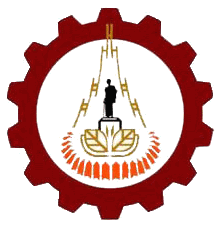Introduction & History
The Institute of Engineering
Immediately after the last brick had been laid, the Institute of Engineering began its mission as an educating institution, but not in its present and familiar form. The institute first admitted undergraduate students in May 1993 and operated under the administration of the Institute of Industrial Technology and the Institute of Resource Technology.
The university then merged the two institutes and transferred the School of Agricultural Engineering from the Institute of Agricultural Technology to the newly formed institute. Thus, the Institute of Engineering with its 14 schools covering vast engineering disciplines was officially established on 1st May 1999 and has, continuously, been in operation since then.
As of now, the Institute of Engineering is one of the eight institutes in the Suranaree University of Technology. “Institutes”, here, are comparable to “faculties, schools, or divisions” in the British university administrative system, “schools or colleges” in the American counterpart, “Fachbereiche or Fakultäten” in the German one, and คณะ (Faculties) in the Thai system, while “schools” function as smaller departments of particular disciplines within the larger institutes.
The Dean is the head of the institute who make sure that missions of the institute are successfully executed. The main responsibilities of the institute itself are to foster an academic environment and create undergraduate, master’s, and doctoral students who are well-versed in their respective engineering areas.
For these past few years, the institute has produced around 65% of all graduated students from all institutes. With this mission as its priority, the institute takes quality assurance in education very seriously. There has been the appointment of a quality assurance committee whose head is the Associate Dean for Administrative Affairs. The committee will ensure the academic quality and, with approval of the Institute of Engineering Committee, coordinate with the quality assurance committee of the university to make sure that the policies made by the institute are corresponding to the governing policies of the university.

